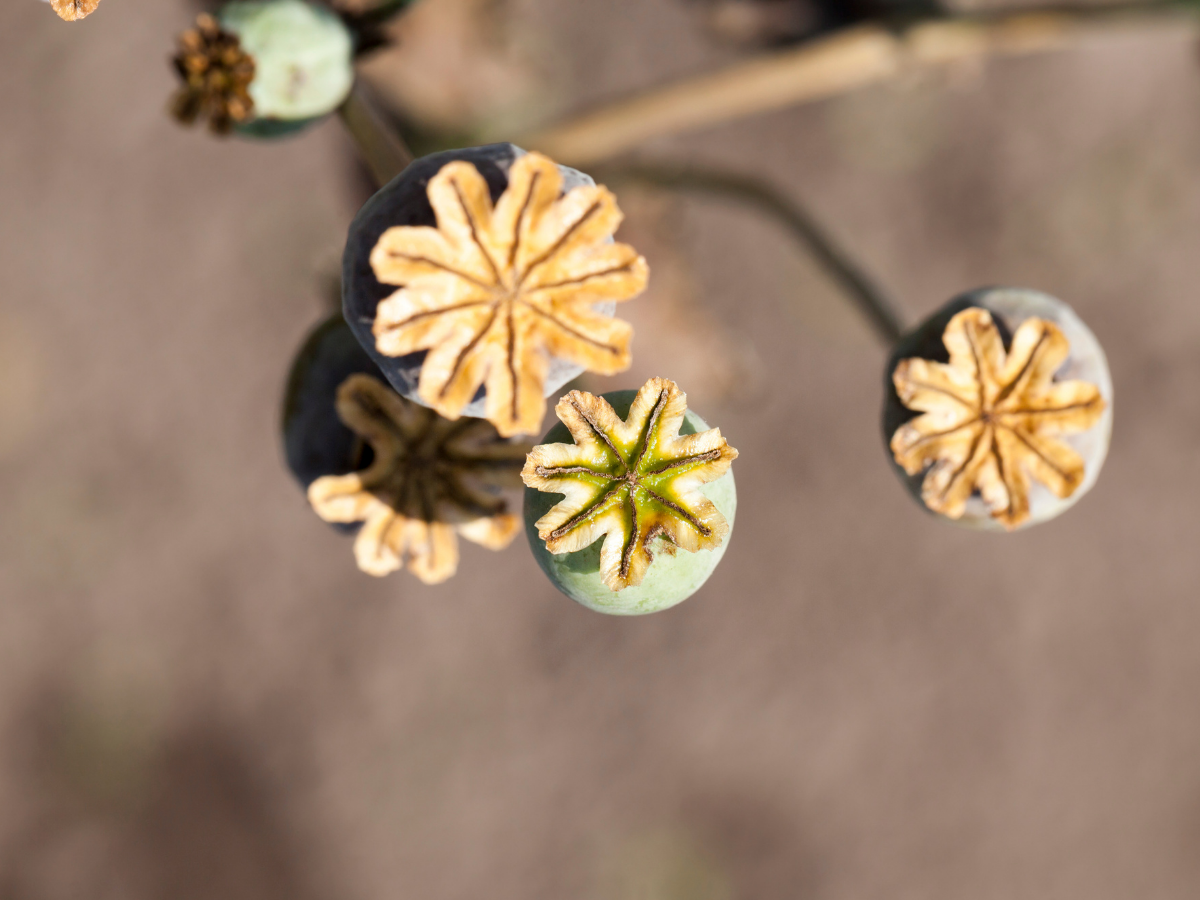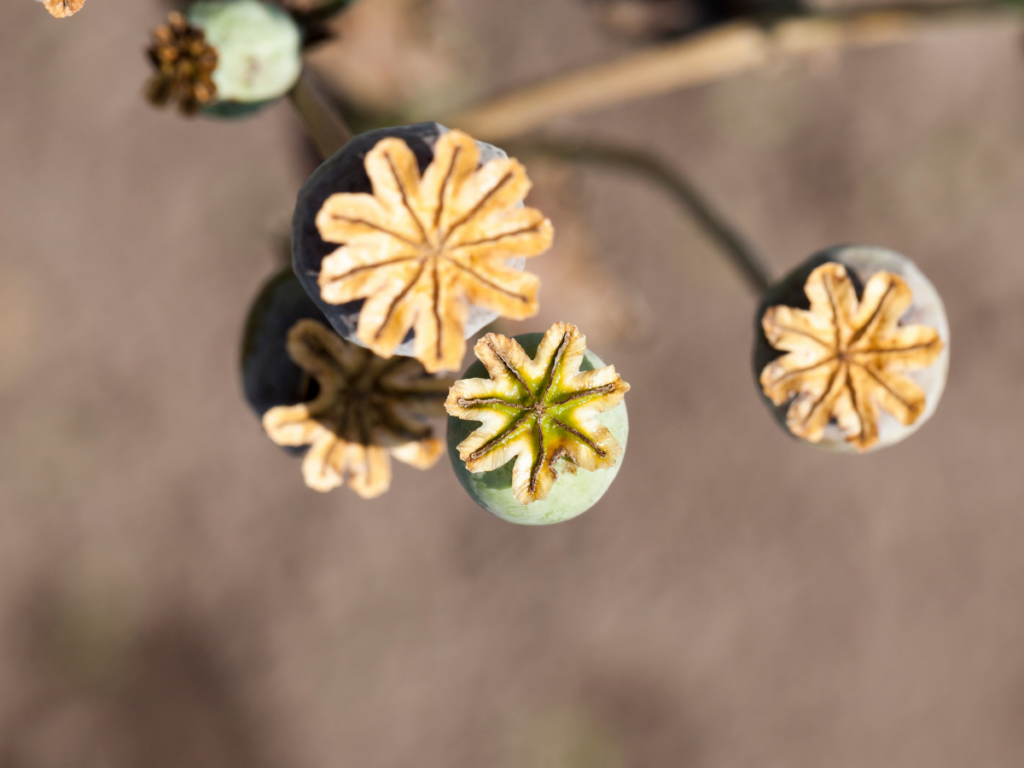 Opium is a highly-addictive, naturally-occurring substance. The milky sap extracted from the opium poppy plant contains isoquinoline alkaloids, which bind to nucleic acids. Alkaloids help develop functional proteins and a pathway to the circulatory system. Familiar drugs like heroin, morphine, and codeine stem from the plant. Overall, if you are wondering where is opium from, it’s from the poppy plant, Papaver somniferum.
Opium is a highly-addictive, naturally-occurring substance. The milky sap extracted from the opium poppy plant contains isoquinoline alkaloids, which bind to nucleic acids. Alkaloids help develop functional proteins and a pathway to the circulatory system. Familiar drugs like heroin, morphine, and codeine stem from the plant. Overall, if you are wondering where is opium from, it’s from the poppy plant, Papaver somniferum.
About the Opium Plant
The opium flower plant is native to Turkey and is also known for its nonnarcotic seeds used in bakery products like bagels and seasoning. The seeds peek from the pores beneath the disk and petals. The plant can reach 16 feet tall and bears purple-white flowers extending 5 inches wide. The flower is beautiful to look at, and a person can feel the latex consistency of the sap that seeps through the plant’s armor.In the Mediterranean region, where opium is from, the plant was discovered growing in the area as early as 5000 B.C., and now can be found in numerous countries all over the world. People began to abuse the plant and spike marijuana with opium, known as “Buddha” and “black,” which is referred to as smoking opium, marijuana, and methamphetamine. Formally, individuals utilized the plant for medical purposes until long-term use concluded that the substance is overwhelmingly addictive.
How to Get Opium From the Poppy Plant
When the opium plant was first discovered, the sap was scraped by hand from the unripe seedpod. Then, the fluid was air-dried, and the result can be a liquid, solid, or powder. A more recent method of extraction includes harvesting strictly for pharmaceutical purposes. However, this does not prevent people from buying the substance off the streets or not over-the-counter. Common street names for opium or opiates include Big O, Chinese tobacco, Toxy, and easing powder.The poppy flower plant does not favor moisture due to an increase in formulating disease. Strong winds, storms, and frost can destroy the plant. If the plants are covered in snow, the chances of surviving are much higher than if hugged by frost. In addition, the growing of poppy is advised to be kept to the professionals since soil preparation is required and heavy or clay-like soil will not produce a good harvest.
Side Effects of Opium on the Body
After reading about where opium is from, understanding the adverse effects of the plant’s drugs may save you from a potential addiction. Synthetic drugs, known as opioids, are also chemically manipulated as a result of discovering the symptoms of opiates. Here are some common side effects of the opiate flower poppy plant:
- Hives
- Chest pain
- Cold sweats
- Blurred vision
- Pinpoint pupils
- Difficulty breathing
- Drowsiness and potential coma
- Low blood pressure or slow pulse
Increased tolerance to the drugs can cause addiction and inflict overdose. It’s essential to be aware of the signs of addiction and seek to undergo an opioid detox with professionals. Addiction can be prevented if individuals only consume opium when prescribed by a doctor or for severe health risk reasons.
Addiction Treatment at Our Florida Wellness Drug Rehab
If you or a loved one is desiring more information on opium or certain drug side effects such as the effects of cocaine, then contact a medical team member at Evoke Wellness. We are here to provide you with medically monitored drug detoxes, as well as unique programs and services to help you throughout the recovery process. We understand that addiction is experienced differently by everyone, but with the correct professional care, individuals can take back control over their lives. Please don’t wait to contact a specialist at Evoke Wellness Treatment Center today at 833-819-6066 and ask about our intensive inpatient treatment care to get started today! Related Readings:Addictive Medication to Be Cautious AboutLong Term Effects of Benzos


